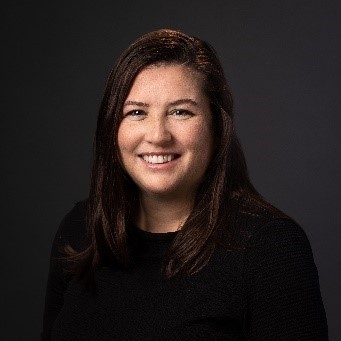| SEFI Ethics Special Interest Group Newsletter
|
| | | | |
| The Ethics SIG Newsletter is issued 9 times per year and aims to share information on latest engineering ethics research and practices. If you would like to join the mailing list please use the form on the SEFI Ethics SIG website.
If you have something you want to share in the newsletter (great ideas, upcoming workshops, nice experiences …), let us know: Diana ([email protected]) and Gunter ([email protected]) |
Coming up in this month’s newsletter |
| | | | |
| Dear reader,
We are quite excited to share with you the new concept of the SEFI Ethics Newsletter! From next month onwards, we will bring thematic issues as a result of in-depth discussion among engineering ethics educators. You find the invitations for the workshops below here in the newsletter, and you can expect the reports in the subsequent newsletter. We start with “Ethics in the context of accreditation” in February and “Using case studies in engineering ethics education” in March. You will also find the invitation to register for the Ethics Spring School which takes place on 25 and 26 March.
Of course, we keep bringing some thought-provoking single topics as well. This month we are proud to present you the article “A wistle-blower about whistleblowing and how to treat the theme in engineering ethics education” of Laura Nolan, who has spoken publicly about why she left Google in 2018 over Project Maven. Our second editorial "Never give up on the power of language and switch focus from isolated individuals to interpersonal relations" by Patrice Chazerand offers his view of digital ethics.
We hope you enjoy reading this together with the wealth of information in “open calls”, “news and initiatives” and “Recent articles and publications”.
Gunter Bombaerts and Diana Martin
|
Invitation: SEFI SIG Ethics online seminar series |
| | | | |
| Beginning with February 2021, the working group on ethics is launching a series of online seminars on different themes related to engineering ethics education. Through this series of events, we aim to bring to the attention of the community of engineering educators various ethics topics, initiatives and challenges. By bringing together educators and researchers from different parts of the world, we also hope to create a network of ‘friends of engineering ethics education’. If you wish to propose a theme for a future ethics seminar, or are interested in organizing such a seminar yourself, please contact Diana ([email protected]). We bring to your attention our forthcoming seminars: |
| | | | | | |
| 15-17:00 UTC / 16-18:00 CET / 10-12:00 EST:
|
| | The first seminar is dedicated to the broader theme of ethics in the context of accreditation. Accreditation and policy play a major part in the construction and design of engineering programmes, the weight of ethics at this level is variable. Please join us in the debate, to explore accreditation and its role in engineering ethics education. |
| | | | |
| 14-16:00 UTC / 15-17:00 CET / 09-11:00 EST
|
| | The seminar aims to respond to the need for guidance in the area of engineering ethics case instruction, bringing together four educators who have experience with developing and using case studies. Each of the four speakers will present an engineering ethics case study they developed, hoping to inspire engineering instructors in their teaching, as well as to foster a discussion about the broader goals and frameworks related to the use of case studies.
|
| | | | |
| 14-16:00 UTC / 15-17:00 CET / 09-11:00 EST
|
| | (workshop) In our engineering ethics teaching, we use film and fiction to illustrate and exemplify ethics in engineering work: from 24 Black Mirror, and Star Wars to Ursula LeGuin and Paolo Bacigalupi’s short stories, novels like The Intuitionist by Colson Whitehead orAlexander’s Bridge by Willa Cather, and more. This seminar aims to create a discussion amongst the participants of the pros and cons of using film and fiction in engineering ethics education. It will also provide examples of film and fiction that can be used to teach engineering ethics - and participants are strongly encouraged to bring their own examples of using film and fiction to share.
|
| | | | |
| A whistle-blower about whistleblowing and how to treat the theme in engineering ethics education |
| | | | |
| by Laura Nolan (Ireland)
Disclosures made by practitioners about wrongdoing are one of our last lines of defence against illegal or unethical behaviour by companies or institutions. Recent prominent examples in technology and engineering include Edward Snowden, Ed Pierson at Boeing, and Christopher Wylie of Cambridge Analytica. In a much smaller way, I’m a whistleblower as well - I’ve spoken publicly about why I left Google in 2018 over . |
| | | | | | |
| My undergraduate computer science education included ethics and Science and Technology Studies (STS). It was a very different time - I studied from 1998 to 2002, and most people didn’t have an email address, Facebook and smartphones didn’t exist, and Google was in its infancy. Although I found the ethics and STS courses quite engaging, I didn’t think I’d grapple with real moral dilemmas at work. Today’s most pressing ethical issues in technology hadn’t been conceived of. However, even in a slower-moving field, it’s impossible as a student to really relate to the kinds of ethical problems you could face as a senior professional decades later, when you are living them rather than reading case studies. Whistleblowing was not covered in my undergraduate courses, but both the power of and the costs of whistleblowing ought to be part of STEM education. Brian Martin’s publicly available book ‘The Whistleblower’s Handbook’ is a pragmatic look at whistleblowing in practice, and it is an essential resource that students should be aware of. The law is also important - it’s in the process of changing in many states as the new EU Whistleblower Directive is implemented. A STEM-specific concern is that technology companies often use non-disclosure and non-disparagement clauses in standard employee contracts, and potential whistleblowers will need support in understanding the legal risks to them if they speak publicly. The most compelling way to teach about whistleblowing and to show students its relevance may be to tell the stories of whistleblowers. Snowden’s story inspires and resonates because his disclosures were so impactful and because he executed impeccably. But whistleblowing can backfire - so we should study Reality Winner, currently in prison for leaking an NSA report on Russian election hacking. Ed Pierson, a retiree who testified about safety issues he’d seen at Boeing, demonstrates the power of financial independence. Christopher Wylie, on the other hand, went public about Cambridge Analytica at the start of his career - he shows that it’s possible to have a career after a disclosure (I too still have a career in technology). John Doe, who leaked the Panama Papers, is an example of a successful anonymous whistleblower. In my view, it isn’t the role of educators to try to create whistleblowers. To speak out, even anonymously, is a professional duty in some circumstances but it’s also a huge personal risk. Whistleblowers are probably born, not made in ethics class. What educators can do is to make sure students are aware of the duty to disclose wrongdoing and to ensure they know how to do so as safely - and effectively - as possible. Laura can be reached at https://twitter.com/lauralifts or https://lauranolan.substack.com/ |
Never give up on the power of language and switch focus from isolated individuals to interpersonal relations |
| | | | |
| Patrice Chazerand (Digital Europe, Belgium)
My work at DIGITALEUROPE and with the Global Digital Foundation, also as a member of the scientific committee of AI4People, keeps honing a strong interest in how engineers have been shaping our lives since software started “eating the world”, in the words of Marc Andreessen. Being no philosopher, I nonetheless have a feeling that their inclination to fit wide-angle lenses to take the long view complements engineers’ passion for drilling a path, however narrow and challenging, towards problem-solving.
|
| | | | | | |
| Let’s call a few visionaries to the rescue. Antonio Damasio charges Descartes with opening the floodgates to algorithms: by drawing a divide between body and mind, he invited ‘disembodied minds’ (Damasio’s speak for algorithms) to emulate our ‘body-minded brains’. Fellow French thinker Pascal may dispel any confusion: however adept at outrunning man’s spirit of geometry, IT systems will never match his spirit of subtlety. As if foreseeing our ‘Need for Speed’, Paul Valéry cautioned in 1926 against the intoxication by haste. Critically, AI expert Virginia Dignum seems to echo this misgiving by submitting that AI’s direction of travel matters more than how fast we’ll get there. Closer to home Upon observing Man crowded out of the center through no less than four successive revolutions led by Copernic, Darwin, Freud and Turing respectively, Professor Floridi designed two recommendations: never give up on the power of language and switch focus from isolated individuals to interpersonal relations. Indeed, our egregious cult for quantification has sent proper, accurate language in a tailspin. If Camus was right about « misnomers adding to the world’s misery”, we’d better mind Floridi’s advice to « semanticize » without moderation, by coining new words if need be, like he did with « onlife » : keeping up with the crown jewel of our cultural legacy will allow mankind to stay the course, like the spider makes sense of its homegrown web, or like the oyster creates a pearl out of external inputs. Otherwise, we may fall prey to those assigning meaning to each and every elementary particle in us, aka data, even though the whole stack, aka ourself, is unable to make sense out of it, thus to keep a sure hand on the tiller while navigating towards his future. It’s the education, stupid ! Getting digital ethics right is a matter for education: digital tools are here to help. Referring to the single example that I know best, in 2008 the Interactive Software Federation of Europe co-designed guidelines for online game providers jointly with the Council of Europe: https://rm.coe.int/16805a39d3 Although training sessions were duly organized thereafter, nothing beats learning by doing: taking students for a dive into ethically loaded challenges instead of force-feeding the whole text of the European Convention on human rights down their throat looks more effective. Several universities have been working on challenge-based learning and other activating tools in engineering ethics education, unlocking pent-up creativity. The future seems to belong to multidisciplinary cooperation between visionaries and problem-solvers. Patrice can be found at https://twitter.com/jedichaz |
Invitation to SEFI Ethics Spring School 2021:
|
“Experiencing Engineering Ethics Education: Reflections, evidence and perspectives on engineering ethics education in practice” |
Dates: 25 -26 March 2021 Location: online Registration: free here |
| | | | |
| The SEFI SIG Spring School 2021 will offer one and a half days of interactive workshops, papers and discussions on new ideas and practices in teaching and researching engineering ethics.
The audience for the Spring School is teachers and programme leaders who address or would like to address engineering ethics in their teaching, researchers who are working on understanding or advancing the field, and students who study or care about ethics in the engineering professions.
|
| | | | | | |
| The School will include interactive sessions on a range of themes including· - Teaching professional ethics in student team projects·
- Arts-based methods in engineering ethics education·
- An open science approach to developing engineering ethics education·
- The ethics of online education·
- Teaching argumentation with engineers·
- Understanding disengagement with ethics in engineering education·
- Narrating engineering ethics with Aboriginal collaboration
Special sessions will focus on Transatlantic, Trans-Indian ocean, and European perspectives in engineering ethics research and practice. A key organising thread of the Spring School will be to collaboratively edit and update the Wikipedia page on Engineering Ethics: https://en.wikipedia.org/wiki/Engineering_ethics Registrations to the event are limited to 60 people. Those who register are asked to commit to attending most of the sessions in order to ensure a continuity and community-building across the event. The full timetable will be available in early February. For further information contact [email protected] |
Open calls - Upcoming events |
SEFI 2021 Annual Conference Blended Learning in Engineering Education: challenging, enlightening – and lasting?
13-16 September 2021, TU Berlin Call for papers open (deadline 16 March 2021) |
SEFI SIG Ethics seminar: Ethics in the context of accreditation 4 February 2021, 4-6pm CET (online) Registration open
|
SEFI SIG Ethics seminar: Using case studies in engineering ethics education 4 March 2021, 3-5pm CET (online) Registration open |
SEFI Ethics Spring School: “Experiencing Engineering Ethics Education: Reflections, evidence and perspectives on engineering ethics education in practice”
25-26 March 2021, 1.5-day event (online) Registration open |
Great Lakes Philosophy Conference: Ethics in Action 9-11 April 2021 (online) Call for abstracts open (deadline 1 February 2021) |
19th LACCEI International Multi-Conference for Engineering, Education, and Technology: Prospective and trends in technology and skills for sustainable social development: Leveraging emerging technologies to construct the future 21-23 July 2021, Buenos Aires, Argentina Call for papers open (deadline 1 February 2021) |
The Society for Philosophy and Technology Biannual Conference: Technological Imaginaries 28-39 June 2021, UC Lille, France (online) Call for abstracts open (deadline 15 February 2021) |
Frontiers in Engineering Education Annual Conference: Envisioning Convergence in Engineering Education 13-16 October 2021, Lincoln, Nebraska, The US Call for abstracts open (deadline 15 February 2021) |
The Polytechnic Summit: Designing and Building a New Technological University 2-4 June 2021, TU Dublin, Ireland (online) For submission of abstracts and information about the call: [email protected] (deadline 19 February) |
6th International Conference on Smart Learning Ecosystem and Regional Development 24-25 June 2021, University Politehnica of Bucharest, Romania (blended) Call for abstracts open (deadline 15 March 2021) |
ICL 2021: Mobility for Smart Cities and Regional Development – Challenges for Higher Education 22-24 September 2021, TU Dresden, HTW Dresden, Germany Call for abstracts open (deadline 26 March 2021) |
4th International Conference of the Portuguese Society for Engineering Education (CISPEE 2021), “Shaping Engineering Education for the 21st Century” 21-23 June 2021, Instituto Superior Técnico, University of Lisbon, Portugal Call for abstracts open (deadline 29 March 2021) |
Special Issue: Transformative learning for Urban Sustainability: futures of transdisciplinary educational models, structures and tools Journal: Environment, Development and Sustainability Call for papers open (deadline 31 March 2021) |
Special Issue: Emerging Learning Technologies for Future of Work and Education in Engineering Journal: Advanced Engineering Informatics Call for paper proposals open (deadline 30 April 2021) |
| | | | |
| A new semester under a pandemic is approaching, which means that most institutions will continue to have their doors closed for in person teaching, and instructors will try to make their online classes relevant and engaging. Although not exclusively dedicated to teaching engineering ethics online, the new special issue of ASEE deals with many issues that are relevant for engineering educators, irrespective of the discipline or subject they are teaching. The topics addressed relate to course design and content delivery, conducting assessment, project and laboratory work, as well as building rapport in online teaching: https://advances.asee.org/aee-covid-19-home-page/ For those considering teaching engineering ethics online, the guests of the first SEFi SiG ethics online seminar have some ideas: https://www.sefi.be/2020/09/15/teaching-engineering-ethics-online-between-adaptation-and-transformation-2/ |
| | | | |
| Educators based at TU Berlin (Germany) also have suggestions for teaching engineering ethics online, in an interactive course that gives students the chance to engage with their social and environmental responsibilities. Through the interdisciplinary Blue Engineering course, students complement their disciplinary knowledge with competencies of an education for sustainable development. All elements of the course concept are easy to use, transferable, and freely accessible on the website www.blue-engineering.org/wiki/english which contains over 100 teaching/learning units. Now for the first time, the starter kit is available in English, and includes 20 teaching/learning units which can be used independently or can be combined to a full course. For further information about Blue Engineering, as well as the already existing starter kit for -to-face teaching, contact Andre Baiér Andre.Baier@tu-berlin.de |
Call for Papers for a Special Issue on “Emerging Learning Technologies for Future of Work and Education in Engineering” of the journal Advanced Engineering Informatics. This Special Issue aims to explore how research in emerging learning technologies could help us quantify the risks and benefits associated with technology adoption and prepare us for the future of work and education in engineering. Digital learning technologies can enhance, supplement, or even replace traditional on-site education and training and enable human-technology work partnerships and new conceptions of work and workplaces. For more information: https://www.journals.elsevier.com/advanced-engineering-informatics/call-for-papers/emerging-learning-technologies-for-future-of-work |
Recent articles and publications |
| | | | |
| Educating Engineers to Work Ethically with Global Marginalized Communities- link Author(s): Bielefeldt, A.R., Polmear, M., Knight, D.W., Canney, N., Swan, C. ENVIRONMENTAL ENGINEERING SCIENCE |
Environmental Engineering for the 21st Century: Increasing Diversity and Community Participation to Achieve Environmental and Social Justice - link
Author(s): Montoya, L.D., Mendoza, L.M., Prouty, C., Trotz, M., Verbyla, M.E. ENVIRONMENTAL ENGINEERING SCIENCE |
Socially Assistive Robots, Older Adults and Research Ethics: The Case for Case-Based Ethics Training - link Author(s): Battistuzzi, L., Papadopoulos, C., Hill, T., Castro, N., Bruno, B., Sgorbissa, A. INTERNATIONAL JOURNAL OF SOCIAL ROBOTICS |
STS Postures: responsible innovation and research in undergraduate STEM education - link
Author(s): Tomblin, D., Mogul, N. JOURNAL OF RESPONSIBLE INNOVATION |
Testing the Civic-Minded Graduate Scale in Science and Engineering- link Author(s): Hess, J.L., Lin, A., Fore, G.A., Hahn, T., Sorge, B. INTERNATIONAL JOURNAL OF ENGINEERING EDUCATION |
Fostering User-Empathy Skills of Engineering Students by Collaborative Teaching - link Author(s): Wallisch, A., Briede- Westermeyer, J.C., Luzardo-Briceno, M. INTERNATIONAL JOURNAL OF ENGINEERING EDUCATION |
Critical analysis of engineering education focused on sustainability in supply chain management: an overview of Brazilian higher education institutions - link Author(s): Tominaga, L.K.d.G., Martins, V.W.B., Rampasso, I.S., Anholon, R., Silva, D., Pinto, J.S., Leal Filho, W., Lima Junior, F.R. INTERNATIONAL JOURNAL OF SUSTAINABILITY IN HIGHER EDUCATION |
Prevention through Design (PtD) Education for Future Civil Engineers in Malaysia: Current State, Challenges, and Way Forward - link Author(s): Che Ibrahim, C.K.I., Belayutham, S., Mohammad, M.Z. JOURNAL OF CIVIC ENGINEERING EDUCATION |
Students’ attitude toward sustainability and humanitarian engineering education using project-based and international field learning pedagogies - link Author(s): Ngo, T.T. and Chase, B. INTERNATIONAL JOURNAL OF SUSTAINABILITY IN HIGHER EDUCATION |
Open laboratories for social innovation: a strategy for research and innovation in education for peace and sustainable development - link Author(s): Gómez Zermeño, M.G. and Alemán de la Garza, L.Y. INTERNATIONAL JOURNAL OF SUSTAINABILITY IN HIGHER EDUCATION |
| | | | |
| SEFI thanks its corporate partners for their support: |
| | | | |
|
SEFI aisbl 39, rue des Deux Eglises
1000 Brussels
|
| | | | | | | | |
|







